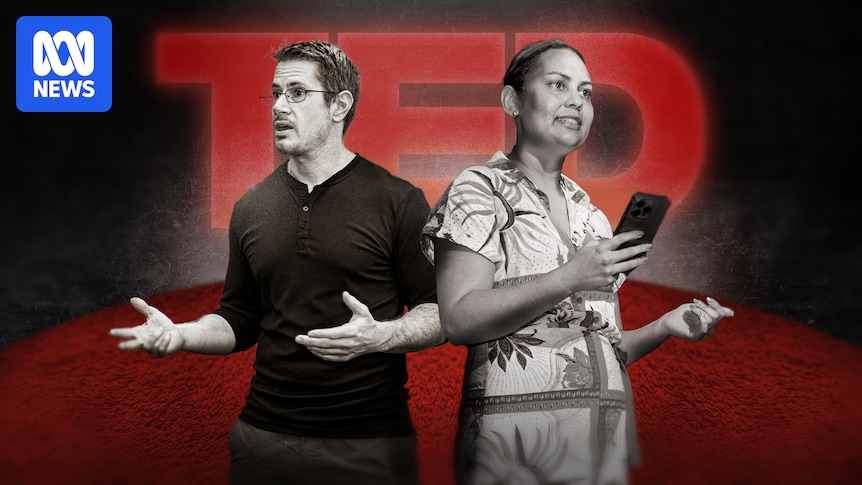
Storytelling lies at the heart of crafting an engaging TED talk. However, distilling a deeply understood subject into a presentation for the global stage can be a daunting task. Ten experts from diverse fields are preparing to speak at the inaugural TEDx Charles Darwin University (CDU) event this Saturday. The sold-out show will feature wildlife specialists, tech innovators, environmental academics, and social thought-leaders, among others.
PhD candidate and crocodile expert Brandon Sideleau is among those gearing up for the event. He describes the preparation as “very much a team effort” between the university and its academics. “I sent my script to the team and they said ‘that’s not going to work’ because I was using some [technical] terminology,” he explained. Instead, Sideleau opted for storytelling, using real-life examples and photographs to elucidate why crocodile attacks occur and how interactions can be minimized without resorting to culling.
From Local Research to Global Impact
The timing of Sideleau’s presentation is significant, as crocodiles have already been hunted to extinction in six countries and are “critically endangered” in others. Despite common misconceptions, Sideleau asserts that Australia does not face a crocodile problem. “We really do not have a crocodile attack problem anywhere in Australia, despite what some politicians may lead you to believe,” he stated.
Sideleau’s research involves compiling a global crocodilian database to understand the circumstances and locations of human-crocodile interactions. His findings indicate that while a significant portion of the global saltwater crocodile population resides in Australia’s Top End, most fatal attacks occur overseas.
Across 14 countries, there are nearly 300 crocodile attacks annually, with about 150 resulting in fatalities.
In countries like Indonesia, people often work in crocodile habitats for essential activities such as fishing and washing, which increases the risk of attacks. “I was noticing that there were a lot of incidents in Indonesia especially,” Sideleau noted. He emphasizes that these incidents highlight the need for improved infrastructure in developing nations.
Preparing for the TEDx Stage
CDU research fellow Sharna Motlap, another speaker at the event, shares Sideleau’s approach to presentation. Although she has spoken at conferences before, the TED stage presents a new challenge. “Even if you have discovered something completely life-changing, if you can’t communicate it then nobody will care,” Motlap remarked.
Motlap’s talk will focus on how motion capture technology can preserve traditional knowledge and cultural understandings. Her work involves creating digital replicas of traditional dances, using technology similar to that used in the movie Avatar. “We place reflective markers on the dancer’s body and then use a system of cameras to track the reflective markers,” she explained. This method captures precise movements in a three-dimensional space, offering a significant advancement over standard video recordings.
“It’s not about the technology, it’s about what it can do,” Motlap emphasized.
Looking Ahead: The Broader Implications
Both Sideleau and Motlap aim to use their TED talks to foster a better future. While Sideleau’s research seeks to mitigate human-crocodile conflicts, Motlap’s work aims to preserve Indigenous culture and knowledge for future generations. Her study of motion capture technology not only immortalizes traditional dances but also safeguards the cultural narratives associated with them.
“It’s exciting because we can now access and preserve that knowledge that was created thousands of years ago, from people living and taking care of this country,” Motlap said. She describes the Northern Territory as “a unique part of the world” and expresses enthusiasm about sharing local research with a global audience.
The TEDx Charles Darwin University event represents a significant opportunity for regional experts to present their work on an international platform, highlighting the importance of storytelling in bridging the gap between complex research and public understanding.







